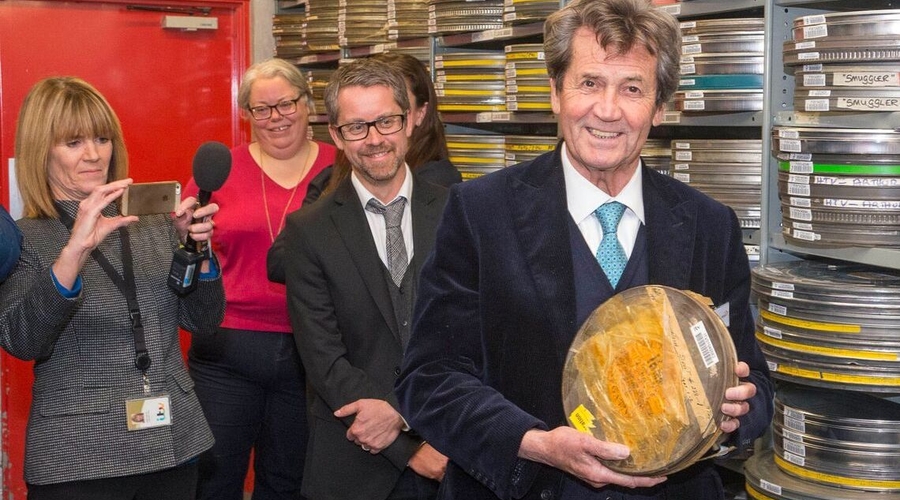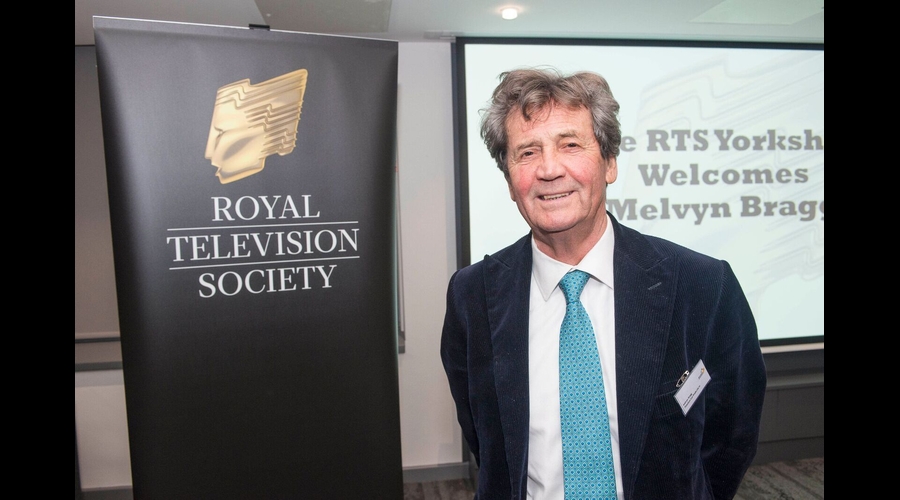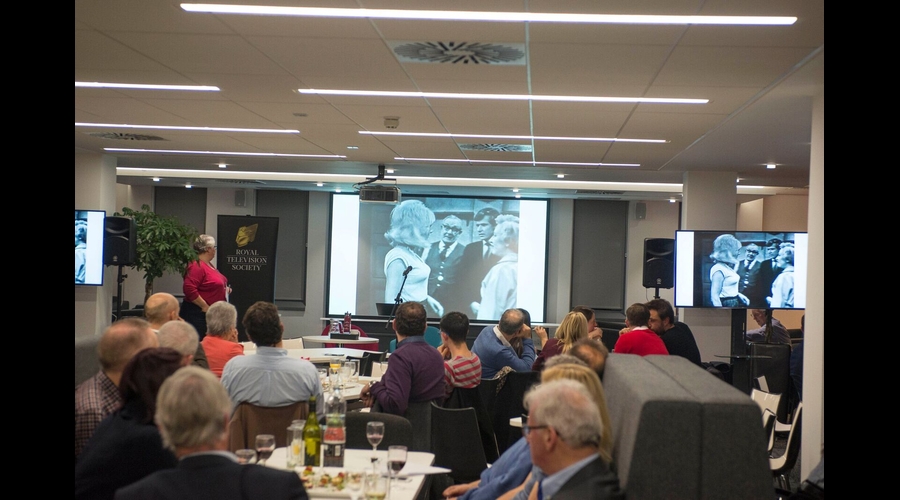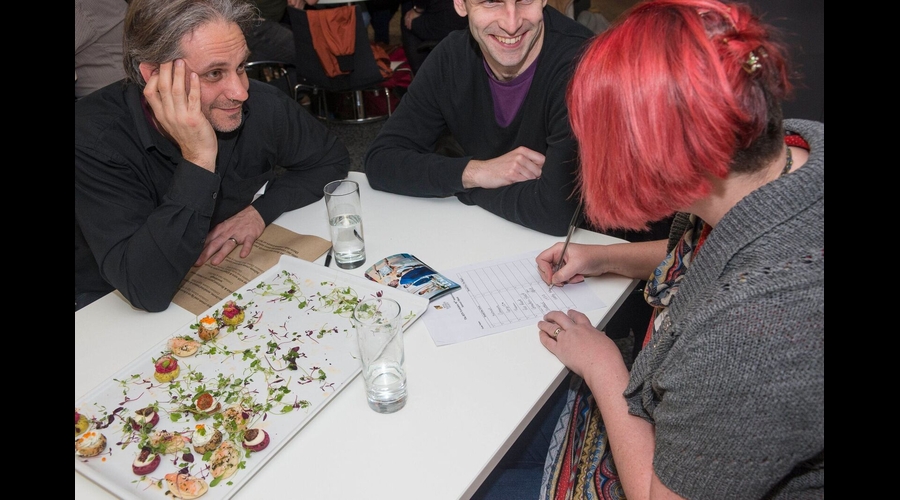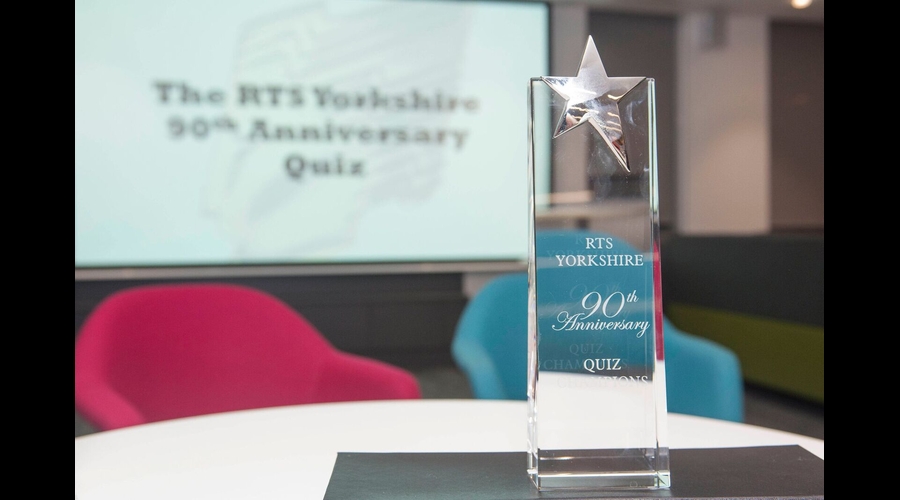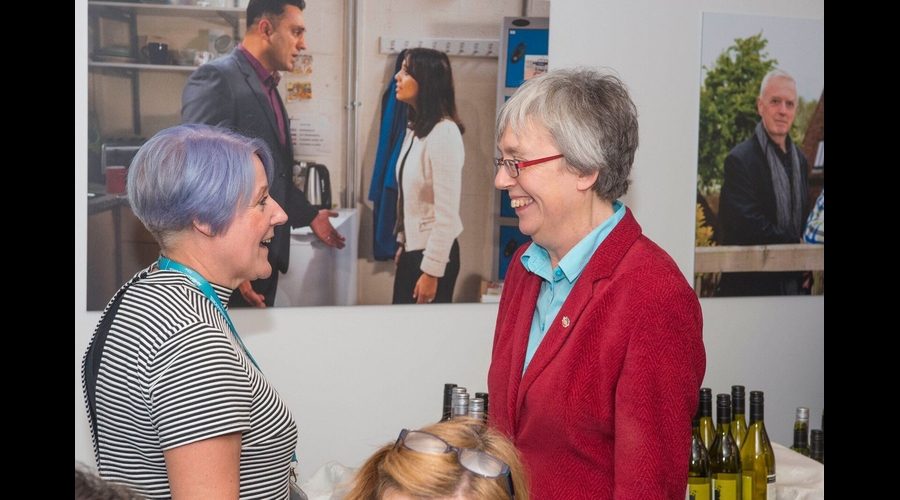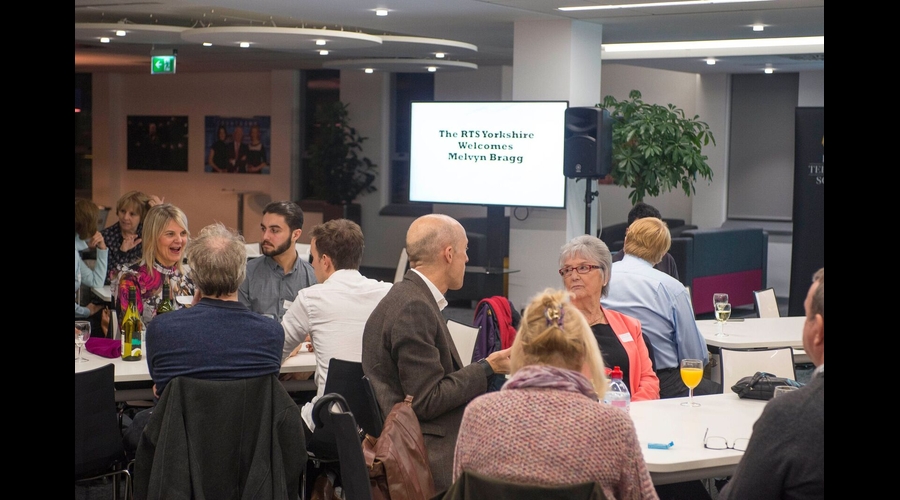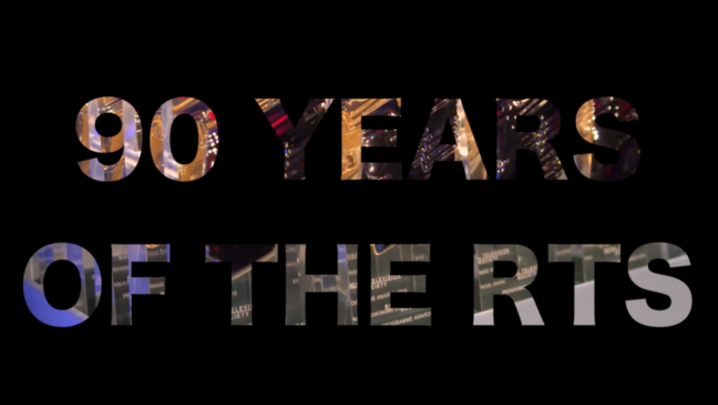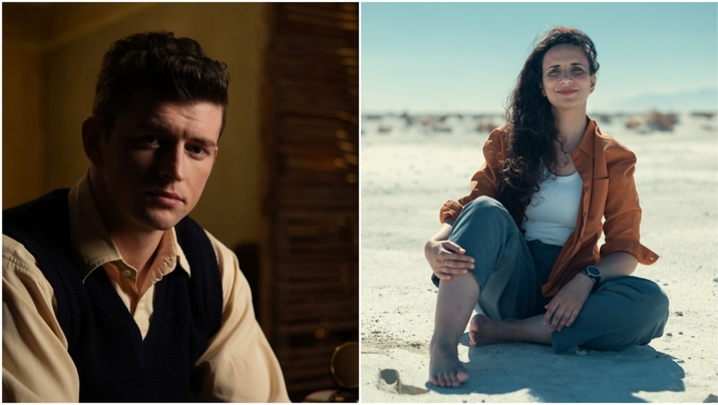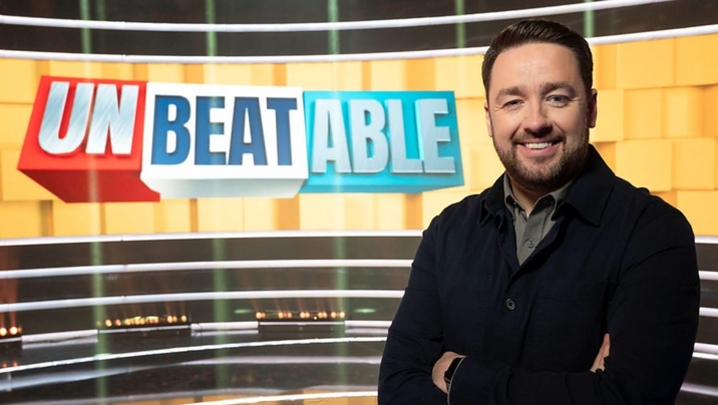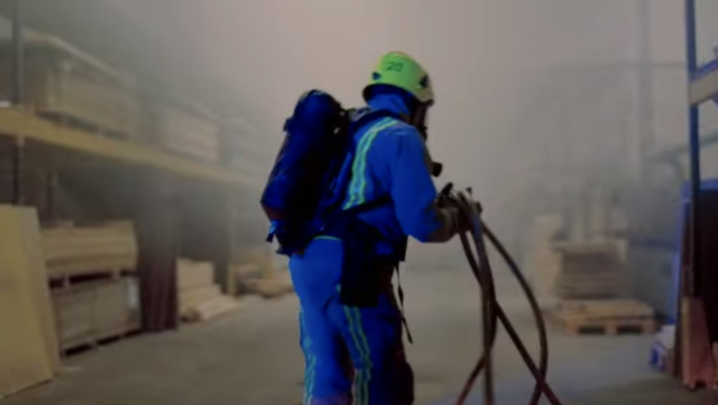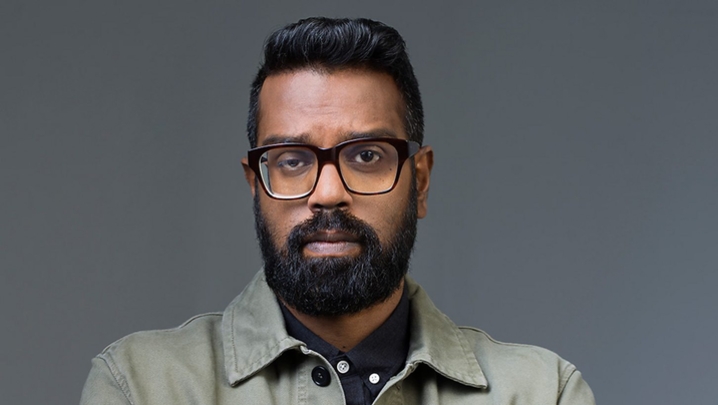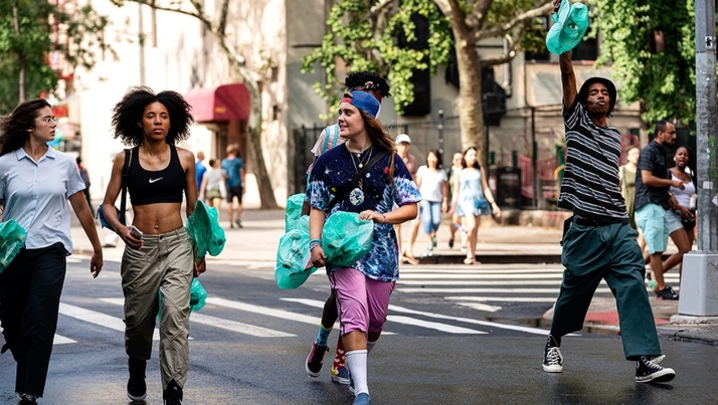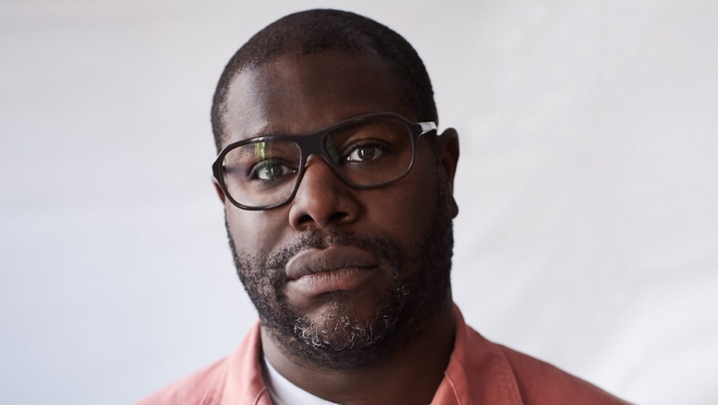Melvyn Bragg described television as the “greatest communication medium ever developed” in a speech at the Yorkshire Centre’s celebration of the 90th anniversary of the Royal Television Society.
The RTS was founded in September 1927, following a lecture at Leeds University from one of the future inventors of television, John Logie Baird.
“Invented before TV – the RTS was always ahead of its time,” said RTS Yorkshire Chair Fiona Thompson, while introducing Bragg to a sell-out crowd at ITV’s Leeds Television Centre in late-November.
During a wide-ranging address, the veteran arts broadcaster argued: “All new inventions provoke wonder and horror; hope and fear.” Television, too, has “a dark side”.
Bragg discussed George Orwell’s 1984, in which citizens are under constant surveillance from “telescreens”: “Here we see, at its most naked, television watching us – the eye of the world has become the camera eye on those who live here. This country is said to be the most CCTV-intensive nation on the planet.”
Noting the power of TV, Bragg said: “We need only to recognise its ability to shift million pounds worth of merchandise on the commercial channels every week.”
The Brexit campaign and “populism of [Nigel] Farage and Boris Johnson” had shown how “mendacious messages can sway opinion.
“Yet this is child’s play, compared with what could be done to scare and cower people with the help of mass surveillance, which grew out of the specific pursuits of television,” he said.
Bragg argued, however, that television is also “a force for good”.
He apologised for offering his own programme, The South Bank Show, which celebrates its 40th birthday in January 2018, in evidence. “[It has] a good size, democratic audience, many of whom were largely unable to see, hear or even read the greatest artists until a very few decades ago, thanks, of course, to television.”
Bragg picked two personal highlights from the vaults of The South Bank Show, which was broadcast on ITV until 2010 and has aired on Sky Arts since 2012.
Forty years ago, recalled Bragg, he wanted to “change the way TV did arts”. Specifically, he wanted to challenge the idea that the so-called high-arts such as opera were inherently superior to popular culture.
The first–ever episode of the show on 14 January 1978 featured an ex-Beatle. The arts broadcaster recalled: “We got slaughtered for that, but I started with Paul McCartney to show I was serious [about my mission].”
Bragg’s second highlight was the programme devoted to Ingmar Bergman (also in 1978), whose film, Summer with Monika, was the first subtitled movie Bragg saw. “I came out of that cinema completely transformed. I realised films weren’t just about actors but writers and directors [too]. I became obsessed about Bergman.”
Among those who turned down The South Bank Show were Samuel Beckett, with whom Bragg “had a nice tea and chatted about cricket” and Graham Greene.
Responding to a question about the dominance of London in the UK economy, Bragg labelled the treatment of the North of England a “disgrace”, accusing the Thatcher Government of the “deliberate destruction of 3 million skilled jobs in the 1980s because they were in Labour strongholds”.
Bragg – who sits in the House of Lords as a Labour peer and was born and bred in Cumbria – added: “What is amazing about the North is its people, their resilience and good humour.”
The Yorkshire Centre and ITV Yorkshire hosted a day of events to celebrate the 90th birthday of the RTS. They included a television quiz – which was won by Shiver North, the factual arm of ITV Studios – and tours of the Emmerdale Studio Experience and ITV Archive.
Bragg has donated 8,000 tins of film, which were shot but not used on The South Bank Show, to the archive. “It’s a feast: seven hours of unseen Norman Mailer; hours and hours of stuff by Pavarotti and Eric Clapton, and tons more we never showed.”
“Archives like ITV’s,” he added, “are fast becoming the repositories of the public and private lives of the nation. It’s extraordinarily important that they are properly preserved.”
All photos by Paul Harness
Shiver North victorious at RTS Yorkshire quiz
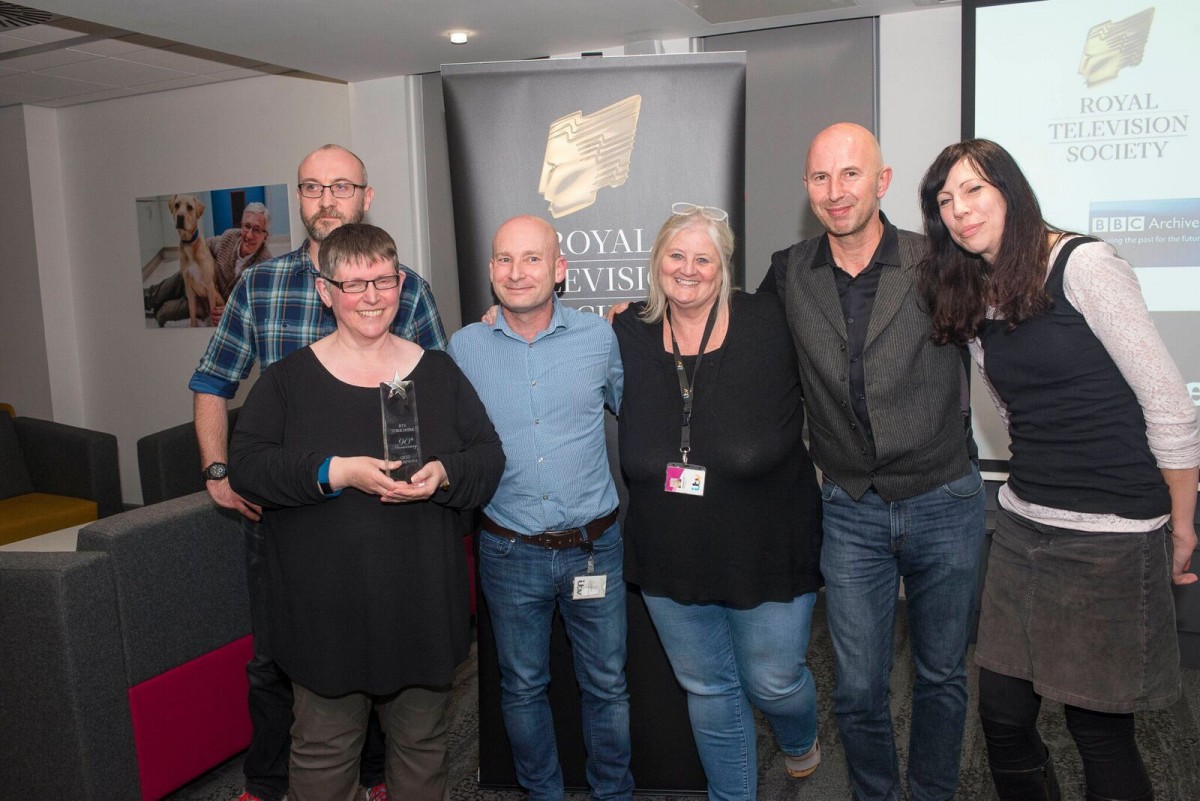 The competition was fierce at the RTS Yorkshire 90th Anniversary Quiz, with all the major players in the region fielding teams. Participants included Daisybeck Studios, BBC Yorkshire, True North, ITV Yorkshire, ITV Archive, Leeds Trinity University, Leeds Beckett University and the ultimate winners, Shiver North.
The competition was fierce at the RTS Yorkshire 90th Anniversary Quiz, with all the major players in the region fielding teams. Participants included Daisybeck Studios, BBC Yorkshire, True North, ITV Yorkshire, ITV Archive, Leeds Trinity University, Leeds Beckett University and the ultimate winners, Shiver North.They were subjected to five fiendish rounds of questions covering the history of TV from John Logie Baird’s first demonstration to the 2017 RTS Awards, via the first moon landing, the 1966 World Cup and the Royal Variety Performance.
Local knowledge was tested with questions about Emmerdale, Last of The Summer Wine and Harry Gration. The final “what year” round was illustrated with some nostalgic clips from the ITV archives, including a fresh-faced Ken Barlow from the 1960s.
The quiz was deemed “tough but entertaining” by the participants. And the quiz mistress, Lisa Holdsworth, is happy to pass on the questions and answers to any RTS Centre wishing to hold their own quiz night.
A full report of the day’s celebrations will appear in the December 2017/January 2018 issue of Television.

